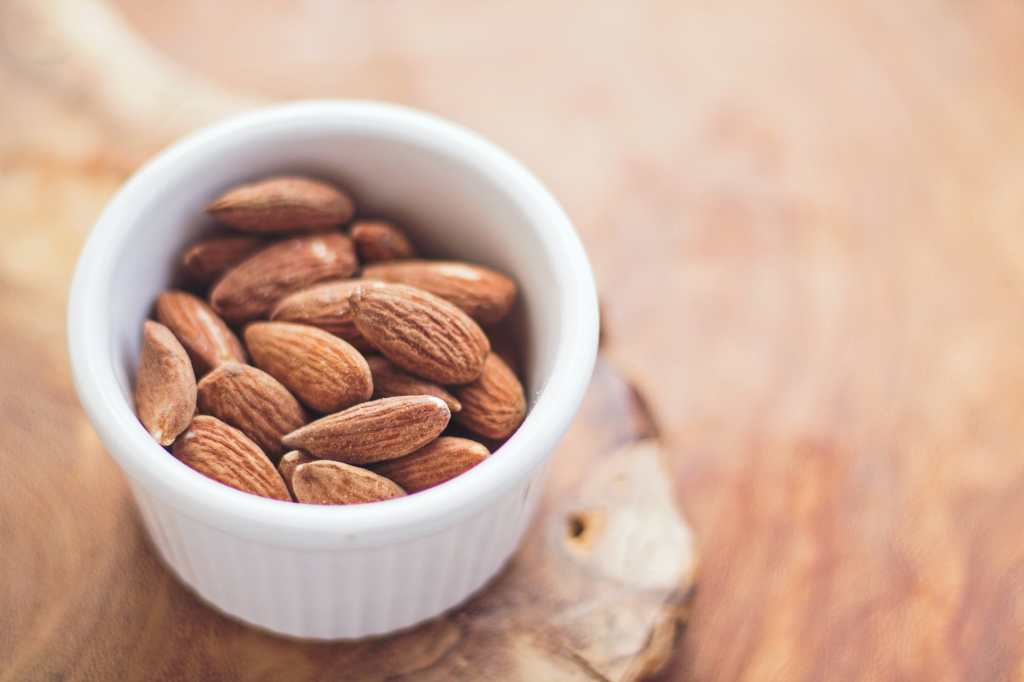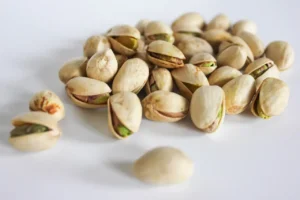Almonds are one of the most nutritious nuts and can be eaten raw or toasted, alone or in the company of other dishes. They have been recognized over the years for their properties and health benefits, for example, they help to take care of cardiovascular health, and the circulatory system, prevent anemia, and are a source of energy.
This dried fruit belongs to the Rosaceae family. According to the Spanish Nutrition Foundation, it is a fruit with a slightly hard and brittle shell, brown beige. The seed is the edible part and measures about 2 centimeters long, with a flattened teardrop shape.
There are different varieties of almonds, some of which can be sweet or bitter. Sweet almonds are those that are consumed as nuts and there are two types: those with a white shell and those with a hard shell. Bitter almonds all have a hard shell and their variation is due to their size.
Its origin is located in Asia, over time it spread to Greece and Rome, but the Romans were responsible for spreading its consumption throughout the rest of Europe and then to America. It is considered to be one of the oldest nuts, it is believed that it was already cultivated and consumed since 2 thousand years BC.
Properties of almonds
Almonds, which have the scientific name Prunus amygdalus, are rich in water, proteins, fats, carbohydrates, and cellulose. Nutritionist Alejandro Gutiérrez adds that they contain vitamins A, C, D, E and B1, B2 and B3.
Likewise, the dried fruit provides calcium, phosphorus, iron, potassium, sodium, magnesium, sulfur, chlorine, manganese, copper, and zinc.
The vitamin E content provided by 50 grams of raw almonds is enough to cover the daily needs of this vitamin. In addition, the fiber it contains helps stimulate bowel movements and gives the feeling of satiety, which is why they are used to lose weight.

This dried fruit also stands out for its contribution to healthy fats. It contains oleic acid, the consumption of which is similar to that of olive oil, which is beneficial for the care of the cardiovascular system.
What are almonds used for?
Almonds have many properties that help with health care. Nutritionists Alejandro Gutiérrez and Carlos Cabrera share some of the benefits of this dried fruit.
- It strengthens bones and prevents osteoporosis, due to its high content of calcium, magnesium, phosphorus, and potassium.
- Reduces the risk of cardiovascular diseases, such as heart attacks and heart problems.
- They protect the heart, since thanks to magnesium, fiber, potassium, and vitamin E they stimulate the absorption of HDL cholesterol and prevent LDL cholesterol, commonly called “bad cholesterol” from adhering to the arteries.
- It helps you lose weight. This dried fruit is used as a snack between main meals, due to the feeling of satiety it provides thanks to the percentage of fiber in its composition.
- Provides energy. Due to the vitamin B2 it contains, this food provides ideal energy for exercise.
- They prevent cancer and diabetes, as they are rich in antioxidants, such as free radicals, which prevent degenerative diseases. Studies indicate that most of the antioxidants are in the shell of almonds.
- They increase brain function,
- They improve the immune system, and thanks to zinc they combat tiredness and fatigue. In addition, vitamin A helps detoxify the body.
- They prevent insomnia because phosphorus and magnesium help combat anxiety and promote good rest.
- Improves skin health. Almond essential oil helps to fade stretch marks in pregnant women. It also helps to soften hands and feet.
- Stimulates breast milk
How many almonds should you eat a day?
Excessive consumption of almonds may cause thyroid problems, especially for those who have already been diagnosed with hypothyroidism. It is not recommended for those who are allergic to nuts.
Experts recommend eating around 20 almonds a day to avoid any health problems.






















+ There are no comments
Add yours